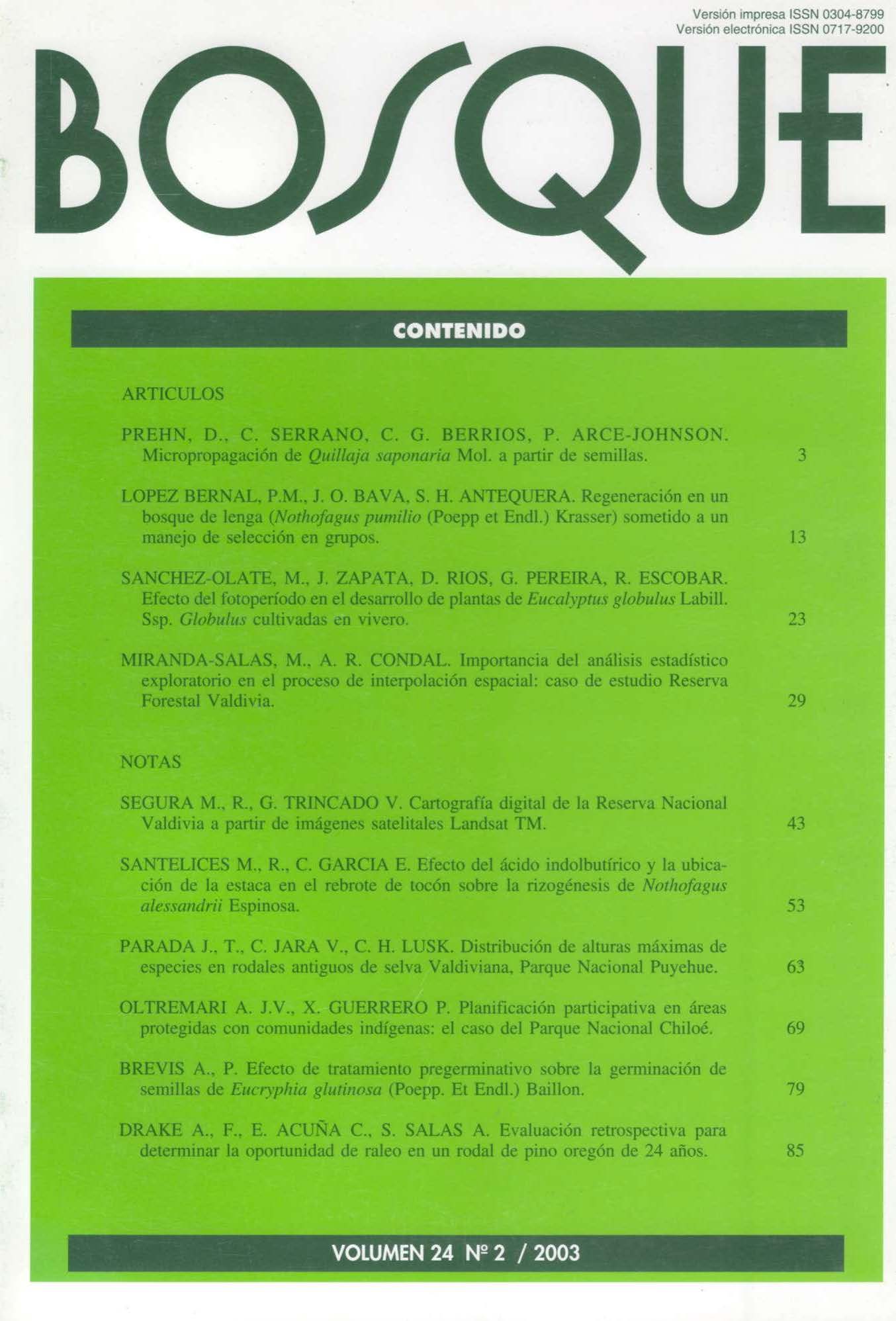Importance of the exploratory statistics analysis on spacial interpolation process: Study case of Valdivian Forest Reserve
Main Article Content
Abstract
This paper discusses the importance of the exploratory statistical analysis in the interpolation process of spatial data. Basic methods and the hypothesis upon which they are based are reviewed. To illustrate their usefulness, a case study based on forestry data is presented in which information on the topographic and basal areas of trees is analyzed from a geostatistical point of view. Firstly, it is shown that the set of topographic data used in this work satisfied the requirements for the intrinsic hypothesis of the regionalized variable theory. Secondly, evidence is presented that indicates information on the basal area of trees does not satisfy these conditions. This is attributable to the total lack of spatial correlation shown by these data. Given this evidence, it is finally argued that a successful interpolation procedure cannot be accomplished without first considering the results obtained from an initial or preliminary statistical analysis of the data to be interpolated.

